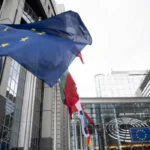Dubai, known for its gleaming skyscrapers and luxurious lifestyle, has another side to its global reputation—one that involves corruption, lax regulation of the gold trade, and its strategic location as a hub for illicit financial activities. In recent years, Dubai has emerged as a hotspot for gold smuggling, gold laundering, and trade-based money laundering (TBML), particularly involving African countries. This article delves into Dubai’s role as a facilitator of these illicit financial flows, shedding light on the factors contributing to this alarming trend.
Dubai’s Attraction for Gold Smuggling
Dubai’s allure for gold smugglers lies in its favorable geographic position between Asia and Africa. Gold from various African nations finds its way to Dubai, regardless of the region’s location. The majority of gold bound for the United Arab Emirates (UAE) is transported by air, often by individual couriers carrying 2 to 20 kilograms of gold, with 10 kilograms being the norm. Dubai’s bustling airport, the world’s busiest by passenger volume, serves as a crucial gateway for these illicit activities. Direct and affordable flights connect many African capitals to the UAE, making it easy for gold couriers to reach Dubai swiftly and discreetly.
Free Trade Zones: Regulatory Loopholes
Dubai’s free trade zones have become fertile ground for criminal actors to exploit regulatory loopholes. A 2010 study by the Financial Action Task Force (FATF) identified numerous weaknesses in free trade zones, including lax oversight, limited transparency, lack of trade data, and inadequate systems integration. Dubai’s gold-centric free trade zones have thrived despite these vulnerabilities, with the Dubai Multi Commodities Centre (DMCC) welcoming a 12 percent growth in the number of companies in 2018. Gold traders in Dubai also make extensive use of the hawala system, an informal financial network that enables the movement of money without physical currency transfer. The combination of loosely regulated gold imports, free trade zones, trade misinvoicing, and hawala transactions creates an ideal environment for trade-based money laundering networks to operate.
Favorable Tax Rates and Policy Changes
Dubai’s traders, whether involved in illicit or legitimate activities, benefit from the emirate’s favorable tax rates. In 2017, the UAE imposed a 5 percent value-added tax on gold and diamonds at the wholesale level. However, due to a significant drop in reported gold sales, which fell by 30 to 40 percent year-over-year, the UAE rolled back the tax in 2018. This decision aimed to restore Dubai’s status as a global leader in gold trading but inadvertently reinforced its appeal to illicit traders.
The Laissez-Faire Customs Process
Another factor contributing to Dubai’s attractiveness as a destination for smuggled gold is its laissez-faire customs process. Most gold arriving in the UAE is hand-carried by air, subjecting gold couriers to standard security screening, including x-rays. Surprisingly, African nations that serve as export points for gold fail to enforce their export laws and regulations effectively, especially concerning royalties. Figure 5 illustrates the stark contrast between the volumes of gold legally declared and exported from certain African nations compared to the volumes arriving in Dubai from these same countries. This disparity reflects the volume of gold smuggled into Dubai. In 2011 alone, this amounted to approximately 22.5 tons, representing a tax loss of about $22.5 million to the exporting nations.
Methods of Evading Detection
The techniques employed by gold couriers to evade detection vary, but they often involve pre-arranged arrangements with airport security staff at the exporting airport. Couriers have reported instances where x-ray machines at airports detected their gold, only for it to be passed on to a higher-level supervisor who facilitated their passage and the gold’s transit. Once past security and aboard the plane, couriers declare their gold to customs authorities in the UAE, with no taxes involved. Couriers complete a gold import form, providing unverified self-reported claims about the gold’s country of origin. This process lacks rigorous verification, allowing couriers to sell the gold freely in Dubai, typically within the Dubai gold souk. Dealers in the souk often record these purchases as scrap gold, creating a plausible paper trail for selling it to one of Dubai’s gold refineries.
Dubai’s rapid growth as a financial center and its geographical advantages have inadvertently made it a hotspot for gold smuggling, gold laundering, and TBML activities involving African countries. The combination of lax regulations, free trade zones, favorable tax rates, and a permissive customs process has created a haven for illicit financial flows. Addressing this issue requires international cooperation and stringent regulatory reforms to curb the exploitation of Dubai’s vulnerabilities by criminal networks. Dubai’s reputation as a global financial hub hangs in the balance, and its response to these challenges will shape its future role on the world stage.






